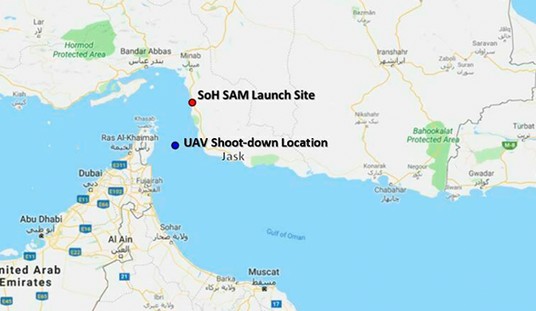This isn’t the most propitious time to lose track of a former detainee from Guantanamo Bay — especially not in South America. With Ramadan ending today [see update] and the 2016 Olympics slated to launch in 31 days, the last thing Brazil needs is another potential global crisis to stack onto its Zika outbreak and the sewage-fouled venues that will host the aquatic events in August. It didn’t take Abu Wa’el Dhiab long to give his Uruguayan hosts the slip, though, and now the rush is on to find him:
A former Guantanamo Bay detainee released in South America has been misplaced, and a Brazilian airline has issued an alert asking its employees to be on the lookout for him.
Abu Wa’el Dhiab, who was released in Uruguay in December 2014 after twelve years spent in detention, has vanished after purportedly entering Brazil. Uruguayan authorities claim he was authorized to visit the country as a refugee, but Brazil has no record of his arrival.
According to a report by the Argentinian publication “Infobae,” Avianca Airlines issued an internal alert notifying its employees that the 44-year-old Syrian may be using a passport under a fake name. The airline has refused to provide further comment.
Dhiab, also known as Jihad Ahmed Mujstafa Diyab, was one of the first detainees cleared for release by the Obama administration, but it took five years for the White House to find a country willing to take him. Uruguay finally offered to take Dhiab and five other detainees, with then-President José Mujica declaring his kinship to them, based on his own detention for political reasons. At the time, Mujica rebuked the US for using Gitmo detainees like Diyab as political pawns and demanded the release of more detainees. Too bad Mujica’s not around to explain Dhiab’s sudden departure from his kinship.
At the time of his release, the DoD assessed Dhiab as a “high risk” detainee and recommended continued detention rather than release, “as he is likely to pose a threat to the US, its interests, and allies.” He had links to several al-Qaeda figures, and at least one of his aliases was connected directly to assistance provided to Abu Musab al-Zarqawi while the latter was fighting for Osama bin Laden in Afghanistan. Zarqawi would later found the terror group that eventually morphed into ISIS.
The DoD assessed Dhiab as both a high-risk detainee and one with a high value for intelligence. His occupation as forger had likely been very helpful to AQ in their “global facilitation network,” and Dhiab had remained uncooperative about it. “Detainee remains unexploited with respect to his knowledge on production and dissemination of forged documents,” his 2008 assessment report reads. “If detainee’s cooperation improves, further interrogations could yield a substantial amount of information on al-Qaida facilitation networks.”
It’s not difficult to figure out, then, how Dhiab gave Uruguayans the slip. And it shows how difficult it will be to get their hands on him again, especially in the near term as targets of global significance practically drop into his lap. Worst of all, we got nothing for his release — no hostages, no cessation of hostilities, not even a thank-you note. It’s yet another reminder about how one side of this conflict takes it seriously as a war, and the other does not. Unfortunately, we’re in the latter group.
Update: Ramadan ends today, rather than starting tomorrow. My apologies for the error.








Join the conversation as a VIP Member